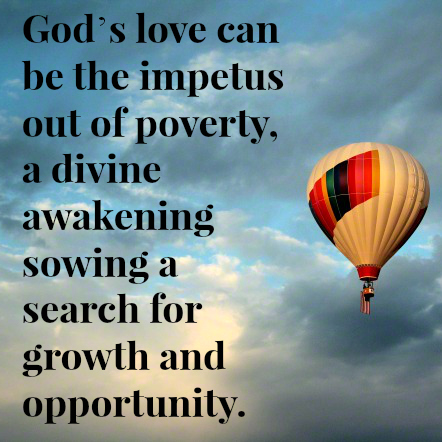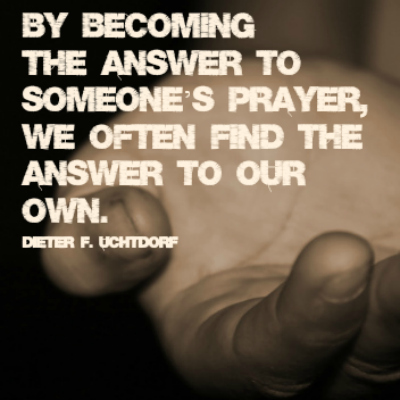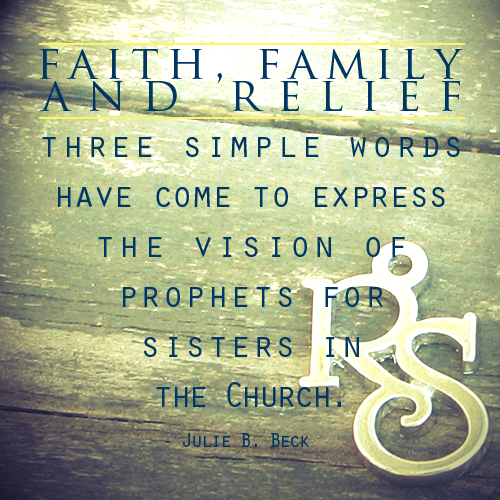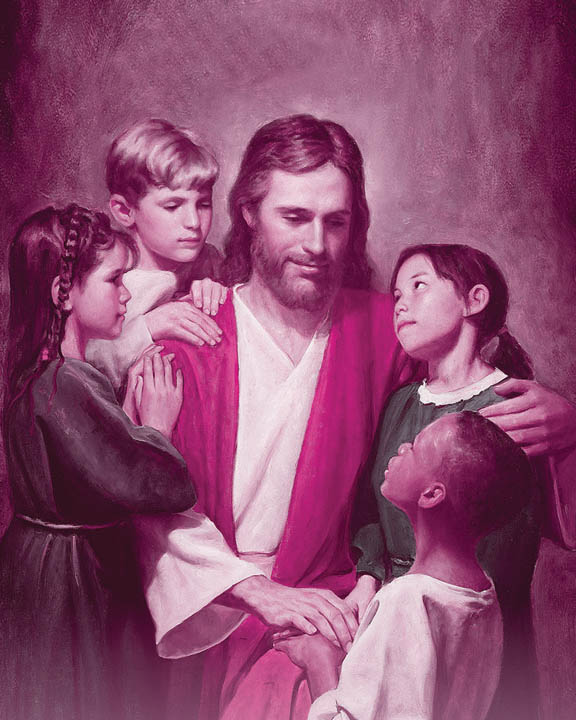
by Delisa Hargrove | Mar 27, 2014 | About Mormons
Though we live in a time of incredible opportunity, impoverished neighborhood cultures still influence people’s views on success. Negative influences can hamper a family’s economic development for generations.
Some analysts are very pessimistic about cultural trends in low-income communities and their impact on mobility. In Coming Apart, Charles Murray describes the sharp decline in poor neighborhoods of four “founding virtues” linked to economic improvement: industriousness, honesty, marriage, and religiosity. He and others also worry that the growing homogeneity of both rich and poor communities means those at the bottom are less likely to encounter upwardly mobile neighbors and positive social norms. Robert Putman sees such trends as trapping people in a low-achieving social class. Indeed, it should be no surprise that being raised in a neighborhood where it is accepted that few complete high school, or work steadily, or delay childbearing until it is economically viable, depletes the motivation to complete the steps needed to make it to the middle class. True, some do overcome such cultural stickiness. But NYU’s Patrick Sharkey observes that an upbringing in a very poor, segregated neighborhood is likely to have dire, multigenerational impacts. Stuart M. Butler
Another factor can help people “unstick” themselves and raise their sights. Joining themselves with a religious community whose doctrines and principles align with principles of success can give them new vision about their own status in life.

The Church of Jesus Christ of Latter-day Saints (often inadvertently called the “Mormon” Church) teaches principles of spiritual and temporal salvation. Faith in Jesus Christ propels you to act as He would act and to follow His teachings. Among the most basic of the Savior’s doctrines are truths of the divinity of the soul and the abundant nature of Heavenly Father who is the God of the universe. “Our Father which art in heaven, Hallowed be thy name” (Matthew 6:9) and “…we are the offspring of God…” (Acts 17:29). The Lord promised divine aid when asked! “And all things, whatsoever ye shall ask in prayer, believing, ye shall receive” (Matthew 21:22). God’s love can be the impetus out of poverty, a divine awakening sowing a search for growth and opportunity.
His truths are sound advice for self-reliance. Pay an honest tithing. Live within your means. Save a portion of earnings. Use time wisely. Develop skills and talents. Practice self-control and fortitude. Obtain an education. Be grateful and optimistic.
The following videos highlight Latter-day Saints who found abundance and success through the Gospel of Jesus Christ while honoring their roots.

by Delisa Hargrove | Mar 24, 2014 | About Mormons
Recently The Church of Jesus Christ of Latter-day Saints (also inadvertently called the Mormon Church) shared its humanitarian aid efforts at a United Nations briefing on February 27, 2014. The briefing, one in a United Nations series called “Focus on Faith,” highlights Nongovernmental Organizations’ (NGO) impact around the world. LDS Charities, which is the humanitarian branch of the Church, garnered NGO status from the United Nations several years ago. In 2013, LDS Charities provided $84 million aiding nearly two million people in 130 countries.
Latter-day Saint Church representative Sharon Eubank, director of LDS Charities, said
To care for the poor is a foundational duty of anyone who reveres God and the brother and sisterhood of all — to serve, lift, bless, and relieve suffering independent of religious persuasions, social philosophy, nationality, tribe, gender or background.
[LDS Charities] emphasizes dignity, human worth, cooperation, unity, sacrifice, and the assurance that no one is too poor or too vulnerable or too marginalized to contribute something of value.
LDS Charities is unique in that it is entirely self-funded from donations, the distribution force is labor based, and it partners with other charitable organizations.

7 Initiatives of LDS Charities
1. Clean Water
LDS Charities provides wells and drinking systems for communities without access to clean water. The Church volunteers show local water committees how to maintain the water systems and provide community training on hygiene. Since 2002, LDS Charities has enabled over 7.5 million people to gain access to clean water.
A Thousand Days
http://ldscharities.org/videos/a-thousand-days?lang=eng
2. Neonatal Resuscitation
Since 2002, LDS Charities has trained 193,000 medical professionals “Helping Babies Breathe” to help resuscitate newborns born with breathing difficulties.
A Child’s First Breath
http://ldscharities.org/videos/neonatal-resuscitation-with-elder-holland?lang=eng
3. Mobility Assistance
LDS Charities works with local organizations to evaluate individual’s needs to provide the most appropriate assistance. Since 2002, over 415,000 people have received mobility devices.
Riqui’s Wheelchair
http://ldscharities.org/videos/riquis-wheelchair?lang=eng
4. Vision Care
LDS Charities provides supplies, equipment, and training to eye professionals improving eye care quality in local communities. Since 2003, over 550,000 have participated in LDS Charities’ vision projects.
World of Happiness
http://ldscharities.org/articles/world-of-happiness?lang=eng
5. Food
LDS Charities provides tools and gardening, storage, and nutritional training for families struggling to obtain food.
A Desolate Land Blossoms
http://ldscharities.org/videos/a-desolate-land-blossoms?lang=eng
6. Emergency Response
LDS Charities provides relief of food and other supplies immediately after a disaster.
LDS Charities Syrian Response 2013
http://ldscharities.org/videos/syrian-refugee-response?lang=eng
7. Immunizations
LDS Charities provides local volunteers to immunize people worldwide. Since 2003, 59,000 volunteers assisted in immunization campaigns in 35 countries.
Church Works Toward World Goal to Eliminate Preventable Diseases article
To learn more about The Church of Jesus Christ of Latter-day Saint’s humanitarian mission and aid, visit:
www.ldscharities.org
www.ldsphilanthropies.org
www.providentliving.org

by paulah | Aug 31, 2013 | About Mormons
Like many people, I have a bucket list of places I’d like to visit before I die. I also have a list of places I like to visit now. Some places on my list are unique to me and my personality. I can connect at least eight of them to my heritage or my life as a Mormon woman. I am a member of The Church of Jesus Christ of Latter-day Saints (often inadvertently called the Mormon Church). These eight places are loved at least in part because the gospel of Jesus Christ has helped me learn to love them. Jesus often used the everyday, common objects and occurrences of life to teach his parables. My favorite eight places are listed (but not ranked) below.
 Fabric Stores. Sewing is in my blood. My maternal great-grandmother, Karen, learned the dressmaking and men’s tailoring trades from her father when she was raised in Denmark. She taught her daughter Elsie (my grandmother) to sew. My grandmother, who was mother to nine daughters and four sons, made clothes for each of her children. My mother also learned to sew and taught me basic skills as I grew up. She required me to take a sewing class in high school. I loved to explore the stacks of fabric that she stored in one of her bedroom closets. She regularly let me pick fabric from her stash to make clothes for my dolls or myself. I also loved sifting through her large tin of buttons. (more…)
Fabric Stores. Sewing is in my blood. My maternal great-grandmother, Karen, learned the dressmaking and men’s tailoring trades from her father when she was raised in Denmark. She taught her daughter Elsie (my grandmother) to sew. My grandmother, who was mother to nine daughters and four sons, made clothes for each of her children. My mother also learned to sew and taught me basic skills as I grew up. She required me to take a sewing class in high school. I loved to explore the stacks of fabric that she stored in one of her bedroom closets. She regularly let me pick fabric from her stash to make clothes for my dolls or myself. I also loved sifting through her large tin of buttons. (more…)

by Ben | May 14, 2013 | About Mormons
There’s a lot of junk in this world. Pornography, abuse, kidnappings, not to mention each person’s individual trials, including depression and other challenges. And that’s just close to home. Further away, there are wars, government upheavals, famines, outbreaks of various diseases, civil unrest, discrimination; the list could go on. For the most part, though, I am relatively happy.
 But why? How can I be happy when I turn on the nightly news and hear about kidnapping victims in Ohio or a tragic building collapse in Bangledesh? Or when I call my family and hear about the cousin whose marriage has failed, just the latest in a long line of family tragedies? The answer is twofold: knowledge and action.
But why? How can I be happy when I turn on the nightly news and hear about kidnapping victims in Ohio or a tragic building collapse in Bangledesh? Or when I call my family and hear about the cousin whose marriage has failed, just the latest in a long line of family tragedies? The answer is twofold: knowledge and action.
Knowledge of the Truth
The number one reason I am happy is because of what I know. As a member of The Church of Jesus Christ of Latter-day Saints, sometimes inadvertently called the Mormon Church, the things I believe give me the greatest opportunity for peace and happiness. Some pieces of knowledge that bring me the most peace and happiness are as follows (more…)

by byustudent | Apr 9, 2013 | Mormon Reflections
BYU Students Share Letters & Reflections on Scripture
BYU (Brigham Young University) is operated by The Church of Jesus Christ of Latter-day Saints, often mistakenly called the “Mormon Church.” As part of their undergraduate coursework, BYU students take multiple semesters of spiritually uplifting, stimulating religion classes.
In this series (see below), students enrolled in scripture study classes have shared their thoughts, insights, and reflections on the Book of Mormon in the form of letters to someone they know. We invite you to take a look at their epiphanies and discoveries as they delve into the scriptures.
In publishing these, we fulfill their desire to speak to all of us of the relevance, power and beauty of the Book of Mormon, a second witness of Jesus Christ and complement to the Bible. The Book of Mormon includes the religious history of a group of Israelites who settled in ancient America. (The names they use are those of prophets who taught the Book of Mormon peoples to look forward to the coming of Christ—Nephi, Lehi, Alma, Helaman, and other unfamiliar names. We hope those names will become more familiar to you as you read their inspiring words and feel the relevance and divinity of their messages through these letters.) (more…)






